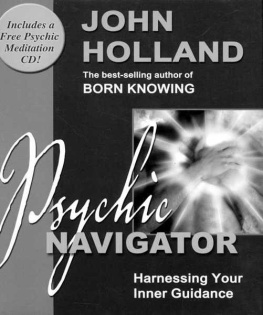THE DEVELOPMENT
OF THE
EUROPEAN NATIONS
1870-1914
BY
J. HOLLAND ROSE LITT.D.
FELLOW OF CHRIST'S COLLEGE, CAMBRIDGE
AUTHOR OF 'THE LIFE OF NAPOLEON,' 'THE LIFE OF WILLIAM PITT,'
'THE ORIGINS OF THE WAR,' ETC.
'Felix qui potuit rerum cognoscere causas.'--VIRGIL.
FIFTH EDITION, WITH A NEW PREFACE AND THREE SUPPLEMENTARY CHAPTERS
1915
| First Edition | October 1905. |
| Second " | November 1905. |
| Third " | December 1911. |
| Fourth " | November 1914. |
| Fifth " | October 1915. |
TO
MY WIFE
WITHOUT WHOSE HELP
THIS WORK
COULD NOT HAVE BEEN COMPLETED
PREFACE TO THE FIFTH EDITION
In this Edition are included three new chapters (Nos. XXI.-XXIII.), in which I seek to describe the most important and best-ascertained facts of the period 1900-14. Necessarily, the narrative is tentative at many points; and it is impossible to attain impartiality; but I have sought to view events from the German as well as the British standpoint, and to sum up the evidence fairly. The addition of these chapters has necessitated the omission of the former Epilogue and Appendices. I regret the sacrifice of the Epilogue, for it emphasised two important considerations, (1) the tendency of British foreign policy towards undue complaisance, which by other Powers is often interpreted as weakness; (2) the danger arising from the keen competition in armaments. No one can review recent events without perceiving the significance of these considerations. Perhaps they may prove to be among the chief causes producing the terrible finale of July-August 1914. I desire to express my acknowledgments and thanks for valuable advice given by Mr. J.W. Headlam, M.A., Mr. A.B. Hinds, M.A., and Dr. R.W. Seton-Watson, D. Litt.
J.H.R.
CAMBRIDGE,
September 5, 1915.
PREFACE TO THE FOURTH EDITION
The outbreak of war in Europe is an event too momentous to be treated fully in this Preface. But I may point out that the catastrophe resulted from the two causes of unrest described in this volume, namely, the Alsace-Lorraine Question and the Eastern Question. Those disputes have dragged on without any attempt at settlement by the Great Powers. The Zabern incident inflamed public opinion in Alsace-Lorraine, and illustrated the overbearing demeanour of the German military caste; while the insidious attempts of Austria in 1913 to incite Bulgaria against Servia marked out the Hapsburg Empire as the chief enemy of the Slav peoples of the Balkan Peninsula after the collapse of Turkish power in 1912. The internal troubles of the United Kingdom, France, and Russia in July 1914 furnished the opportunity so long sought by the forward party at Berlin and Vienna; and the Austro-German Alliance, which, in its origin, was defensive (as I have shown in this volume), became offensive, Italy parting from her allies when she discovered their designs. Drawn into the Triple Alliance solely by pique against France after the Tunis affair, she now inclines towards the Anglo-French connection.
Readers of my chapter on the Eastern Question will not fail to see how the neglect of the Balkan peoples by the Great Powers has left that wound festering in the weak side of Europe; and they will surmise that the Balkan troubles have, by a natural Nemesis, played their part in bringing about the European War. It is for students of modern Europe to seek to form a healthy public opinion so that the errors of the past may not be repeated, and that the new Europe shall be constituted in conformity with the aspirations of the peoples themselves.
CAMBRIDGE,
September 25, 1914.
PREFACE
The line of Virgil quoted on the title-page represents in the present case a sigh of aspiration, not a paean of achievement. No historical student, surely, can ever feel the conviction that he has fathomed the depths of that well where Truth is said to lie hid. What, then, must be the feelings of one who ventures into the mazy domain of recent annals, and essays to pick his way through thickets all but untrodden? More than once I have been tempted to give up the quest and turn aside to paths where pioneers have cleared the way. There, at least, the whereabouts of that fabulous well is known and the plummet is ready to hand. Nevertheless, I resolved to struggle through with my task, in the consciousness that the work of a pioneer may be helpful, provided that he carefully notches the track and thereby enables those who come after him to know what to seek and what to avoid.
After all, there is no lack of guides in the present age. The number of memoir-writers and newspaper correspondents is legion; and I have come to believe that they are fully as trustworthy as similar witnesses have been in any age. The very keenness of their rivalry is some guarantee for truth. Doubtless competition for good "copy" occasionally leads to artful embroidering on humdrum actuality; but, after spending much time in scanning similar embroidery in the literature of the Napoleonic Era, I unhesitatingly place the work of Archibald Forbes, and that of several knights of the pen still living, far above the delusive tinsel of Marbot, Thibault, and Sgur. I will go further and say that, if we could find out what were the sources used by Thucydides, we should notice qualms of misgiving shoot through the circles of scientific historians as they contemplated his majestic work. In any case, I may appeal to the example of the great Athenian in support of the thesis that to undertake to write contemporary history is no vain thing.
Above and beyond the accounts of memoir-writers and newspaper correspondents there are Blue Books. I am well aware that they do not always contain the whole truth. Sometimes the most important items are of necessity omitted. But the information which they contain is enormous; and, seeing that the rules of the public service keep the original records in Great Britain closed for well-nigh a century, only the most fastidious can object to the use of the wealth of materials given to the world in Parliamentary Papers.
Besides these published sources there is the fund of information possessed by public men and the "well-informed" of various grades. Unfortunately this is rarely accessible, or only under conventional restrictions. Here and there I have been able to make use of it without any breach of trust; and to those who have enlightened my darkness I am very grateful. The illumination, I know, is only partial; but I hope that its effect, in respect to the twilight of diplomacy, may be compared to that of the Aurora Borealis lights.
After working at my subject for some time, I found it desirable to limit it to events which had a distinctly formative influence on the development of European States. On questions of motive and policy I have generally refrained from expressing a decided verdict, seeing that these are always the most difficult to probe; and facile dogmatism on them is better fitted to omniscient leaderettes than to the pages of an historical work. At the same time, I have not hesitated to pronounce a judgment on these questions, and to differ from other writers, where the evidence has seemed to me decisive. To quote one instance, I reject the verdict of most authorities on the question of Bismarck's treatment of the Ems telegram, and of its effect in the negotiations with France in July 1870.












